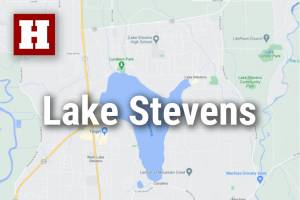Tribes want more time to develop ID cards for use at the Canadian border
Published 11:14 pm Sunday, March 29, 2009
Local American Indians say they shouldn’t be forced to comply when new passport requirements go into effect on June 1 along the U.S. border with Canada.
Federal homeland security officials agreed to allow tribes to create their own identification cards, as long as they are enhanced with security chips. Tulalip tribal leaders agreed to develop ID cards for several area tribes, along with a database that would link to computers at the border, but they’re not sure they’ll be able to create them in time.
Many Tulalips and other Pacific Northwest Indians use ID cards issued by their tribal governments when they cross the border, instead of a driver’s license or passport. They say the practice is a reminder that tribes are sovereign nations with their own governments and laws.
If tribal governments can’t create new, security-enhanced ID cards by June 1, those Indians will likely be turned back at the border.
“We’re racing the clock right now,” said Theresa Sheldon, a Tulalip policy analyst who has worked on the border security issue for several years. “The only way we would be able to make it by the deadline is if they gave us an extension.”
It’s not yet clear whether the federal government will give tribal governments more time to create an ID system that will link to border checkpoints, said Heather Dawn Thompson, director of government affairs for the National Congress of American Indians, an organization that advocates for tribes in Washington, D.C.
The federal government has given states millions of dollars to create ID cards that comply with the Western Hemisphere Travel Initiative and the Real ID Act, both designed to tighten security along borders and within the country, she said. Tribal governments haven’t received any money.
Thompson said her organization has filed a request for a $20 million grant to help tribes create their own enhanced IDs. If approved, that money might not be available until 2010, she said.
The Tulalip Tribes need at least $70,000 just to create the database, Sheldon said. That doesn’t include the cost of staffing the database 24 hours a day so federal border guards can dial into a secure line based somewhere on the Tulalip Indian Reservation and confirm a tribal member’s identity.
It’s not fair to expect tribal governments to pay for a system the federal government requires, Sheldon said.
Tribal leaders say Indians should be allowed to use their tribal ID cards until tribal governments can create new cards with security chips.
That’s the only way tribal governments can both comply with security regulations and protect tribal members from a federal government that tends to try to reach beyond its legal limit, Thompson said.
The problem is of particular concern to tribes along the nation’s northern border, where the 1794 Jay Treaty guaranteed that indigenous people would be allowed to move freely back and forth. As settlers pushed west and U.S. and British officials hammered out the details of the international border between the U.S. and what is now Canada, the terms of the Jay Treaty stretched west, too.
Tribal leaders support border security, Thompson said, but they don’t believe they should be forced to give up their right to cross the border freely without a passport.
Indians who travel regularly to Canada for ceremonies and to visit relatives have every right to do so without complying with a U.S. government policy, said Jewell James of the Lummi Nation, which has a reservation just south of the international boundary.
“It’s important for us in regard to our cultural ways, our spiritual ways and our political alliances that have evolved over millenniums,” James said. “We can’t have that dictated by people who don’t understand tribal culture.”
If Indians who use U.S. passports instead of their own tribal ID cards hinder the effort tribal governments are making to retain sovereignty over their own people, James said.
“For a tribal member, it’s important to know that your own tribal government can guarantee that a lot of this personal data is protected,” James said.
When the federal government makes an effort to count Indians or gather tribal enrollment data, many Indians fear that their tribal governments will lose control over their sovereignty, James said. For many, it brings back memories of the boarding school era, when tribal children were identified by the federal government and taken away from their families.
Even if tribal leaders believed that Indians should carry U.S. passports, it would be impossible for many people who don’t have birth certificates because they were born on reservations, Sheldon said.
“This includes people who are 50 years old right now, not just 80 or 90-year-olds,” Sheldon said. “They don’t have birth certificates, so they don’t have any way of getting a passport.”
So far, only one tribe, the Kootenai of Idaho, have signed an agreement with the Department of Homeland Security that allows tribal members there to use their own security-enhanced ID cards, Thompson said.
The Haudenosaunee Confederacy (also known as Iroquois) in New York state has issued tribal passports since the 1970s, and tribal members use them to travel internationally.
If tribes in the Pacific Northwest create their own ID cards with security chips and create a sophisticated database that links to U.S. border agents, it’s likely that some tribes will go one step forward and create their own passports, James said.
Many tribes already have complicated identification processes requiring proof of blood quantum and other stringent measures in order to be enrolled, James said.
Once the federal government recognizes that tribes are capable of maintaining sophisticated and intricate records, it’s possible that tribal passports will begin to be widely accepted, he said.
Krista J. Kapralos: 425-339-3422, kkapralos@heraldnet.com.




